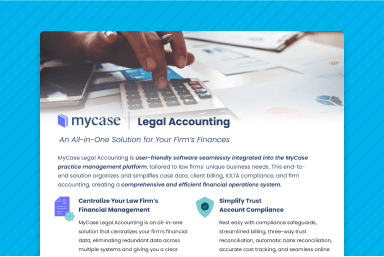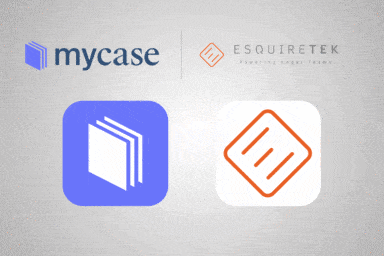Florida Bar On Lawyers Accepting Online Payments

Credit cards have been used by consumers to purchase products and services for decades now. Lawyers, however, have been slower to adapt to accepting credit cards as payment for any number of reasons. For example, some lawyers have avoided accepting credit card payments due to ethical concerns. Others have chosen not to accept credit card or debit card payments simply because they hadn’t used this form of payment in the past. However, despite that initial resistance, many firms have begun to accept credit and debit cards in recent years due to consumer preference and convenience.
The pandemic only served to accelerate this trend, since social distancing requirements necessitated touchless forms of payment that could be accepted remotely. For that reason, law firms have increasingly relied on online payment processing tools throughout the pandemic in order to get paid since it was the only viable way to ensure continued profitability.
Notably, with the increased use of online payment processing tools in law firms over the past year, it’s no surprise that lawyers are seeking guidance from ethics committees in their states regarding how to ensure compliance with ethics rules when using these online payment processing tools. This is because lawyers have an obligation to protect confidentiality and otherwise conform their practices to the ethical requirements of their jurisdiction, so it’s important that their payment processing solution of choice is ethically compliant.
That’s why the Florida Bar Professional Ethics Committee released Proposed Advisory Ethics Opinion 21-2 in March. (Note: the opinion has yet to be approved for release as a final opinion). As explained in the opinion:
“The Florida Bar Ethics Department has received several inquiries whether lawyers may accept payment from clients via Web-based payment-processing services..This also is an increasingly frequent question on the Bar’s Ethics Hotline. Accordingly, the Professional Ethics Committee issues this formal advisory opinion to provide Florida Bar members with guidance on the topic.”
In the opinion, the Committee considered the how and why of lawyers accepting online payments from clients to pay for legal services. At the outset, the Committee confirmed that it is ethically permissible for lawyers to use these online payment processing tools, as long as the services conform to ethical obligations to preserve confidentiality and safeguard funds entrusted to the law firm: “The Committee sees no ethical prohibition per se to using these services, as long as the lawyer fulfills certain requirements.”
According to the Committee, because accepting credit and debit cards via online payments is so commonplace in 2021, it makes no sense to preclude lawyers from accepting this type of payment from clients. Therefore, lawyers should not be prevented from taking advantage the many benefits that come with accepting online payments from clients:
“The Rules of Professional Conduct are ‘rules of reason’ and ‘should be interpreted with reference to the purposes of legal representation and of the law itself’.. When reasonable to do so, the rules should be interpreted to permit lawyers and clients to conduct business in a manner that society has deemed commercially reasonable while still protecting clients’ interests. Permitting lawyers to accept payments via payment-processing services under the conditions expressed in this opinion satisfies those objectives.”
In reaching this determination, the Committee first addressed the privacy risks faced when lawyers accept online payments using payment processing tools that are not designed for lawyers and law firms. The Committee explained that when using tools that are not specifically created to meet the needs of lawyers, a privacy risk is created that “arises from the potential publication of transactions and user-related information, whether to a network of subscribers or to a population of users interacting with an application.”
The Committee determined that lawyers who choose to use payment processing tools that are not designed for law firms such as Venmo or PayPal, which include publication features and thus the risk of disclosing to others that the transaction occurred, an additional step will be required. Prior to using that type of tool to accept client payments “(t)he lawyer must take reasonable steps to prevent the inadvertent or unwanted disclosure of information regarding the transaction to parties other than the lawyer and the client or third person making the payment.”
Next, the Committee explained that before choosing an online payment processing service, lawyers have an obligation to exercise due diligence when vetting the provider. The focus of the inquiry should include ensuring that there are sufficient security and encryption features available:
“Prior to using a payment-processing service, the lawyer must diligently research the service to ensure that the service maintains adequate encryption and other security features as are customary in the industry to protect
the lawyer’s and the client’s financial information and to preserve the confidentiality of any transaction.”
Of course, this vetting process is much easier if the company your firm is considering provides a payment processing tool designed with lawyer and law firms in mind. In that case, security, confidentiality, and trust account compliance will be built in so that you can rest easy knowing that any payments for legal services received will be processed in an ethically compliant and secure manner. In order to simplify the vetting process and ensure that all payment processing transactions are ethical and secure, you may prefer to limit your research regarding legal billing software to systems designed for lawyers that include built-in payment processing functionality.
So that’s what you need to know in order to choose ethically compliant and secure legal billing and online payment processing tools for your law firm. For even more advice on best practices when using legal billing software, make sure to download this free guide: “The Ultimate GuideTo Legal Billing.”


